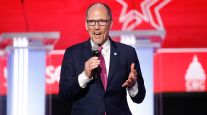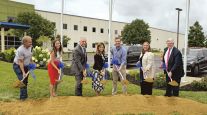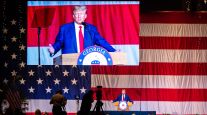Staff Reporter
Rep. Earl Blumenauer Stresses Urgency of Infrastructure Deal
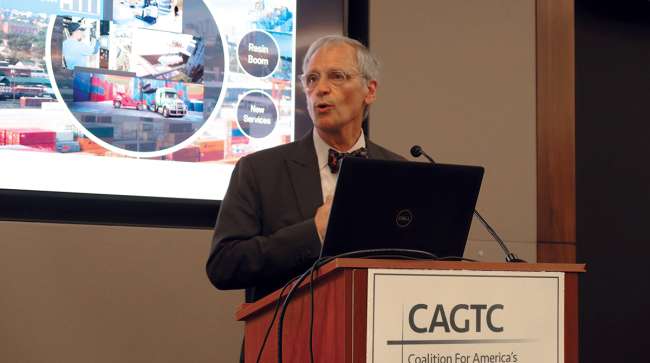
WASHINGTON — A federal infrastructure funding package is within reach, but lawmakers need to act soon, according to Rep. Earl Blumenauer (D-Ore.).
Blumenauer, a member of the House Ways and Means Committee, delivered remarks at the Coalition for America’s Gateways and Trade Corridors’ annual meeting May 14.
President Donald Trump and congressional Democrats held a private meeting April 30 that resulted in an agreement for a $2 trillion infrastructure deal. The plan, which would bolster transportation projects, lacks details about fundraising.
This is one of the few areas where we could get things right politically in this dysfunctional town.
Rep. Earl Blumenauer, D-Ore.
Blumenauer encouraged listeners to meet with their congressional representatives and “create a little dust locally” to generate interest in infrastructure funding.
“This is a bipartisan failure. There are bipartisan solutions, but time is growing short to do it right,” Blumenauer said. “This is one of the few areas where we could get things right politically in this dysfunctional town.”
Jeff Davis, senior fellow for the Eno Center for Transportation, anticipates that one month’s time will reveal if and how a big infrastructure package will play out. Davis cautioned that the Senate will face a slowdown next year as the country braces for a presidential election.
“It’s our bad luck that the Highway Trust Fund is set to expire Sept. 30, 2020, and it’s our bad luck that that comes weeks before a presidential election,” Davis said.
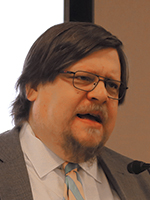
Davis
Although lawmakers generally agree that investment in infrastructure is desperately needed, they falter when it comes to agreeing on a source of revenue. Sustaining the Highway Trust Fund, which assists states with maintenance and construction projects, remains a pressing concern for legislators and transportation officials. The federal fuel tax, which supports the fund, has stagnated at 24.4 cents a gallon for diesel and 18.4 cents a gallon for gasoline since 1993.
Various groups, including labor unions and trade associations, have supported increasing the fuel tax rate to pay for infrastructure. However, Davis said that minimal public trust in the political system could hinder taxpayers supporting such an increase.
Davis noted that Trump has shown flexibility in the bills he will sign, as long as he can claim the legislation as a personal victory. Davis said an infrastructure package will succeed only if lawmakers from both sides of the aisle, and the president himself, enthusiastically support it.
“They’re all going to have to hold hands and jump at the same time,” Davis said. “The window is closing very rapidly, if it was ever wide enough to crawl through at all.”
Blumenauer pointed out that more than half of the states have raised their fuel taxes to generate infrastructure revenue. He recommended raising the fuel tax until road user charges can replace it entirely. Road user charges tabulate how far a vehicle has traveled and charge the vehicle based on that distance. Several states, including Utah, California and Oregon, have conducted pilot programs with such charge systems.
Miles-based user fee systems require technology to tabulate how far a vehicle has traveled, information that helps determine how much a vehicle is charged. Blumenauer noted that trucking companies, many of which already use technology to track distance traveled, probably could implement MBUF systems within 18 months.
“A funding mechanism based on gallons of fuel consumed and parking fees collapses in the course of the next decade,” Blumenauer said.


